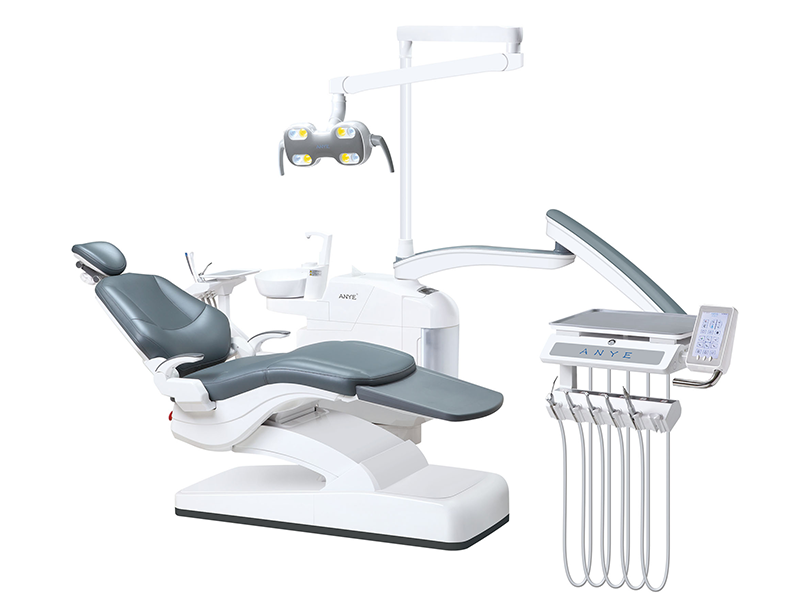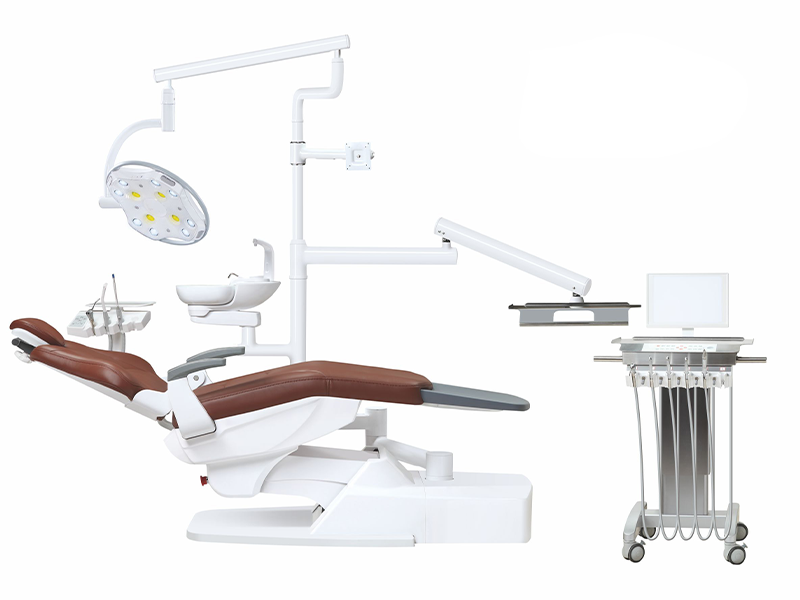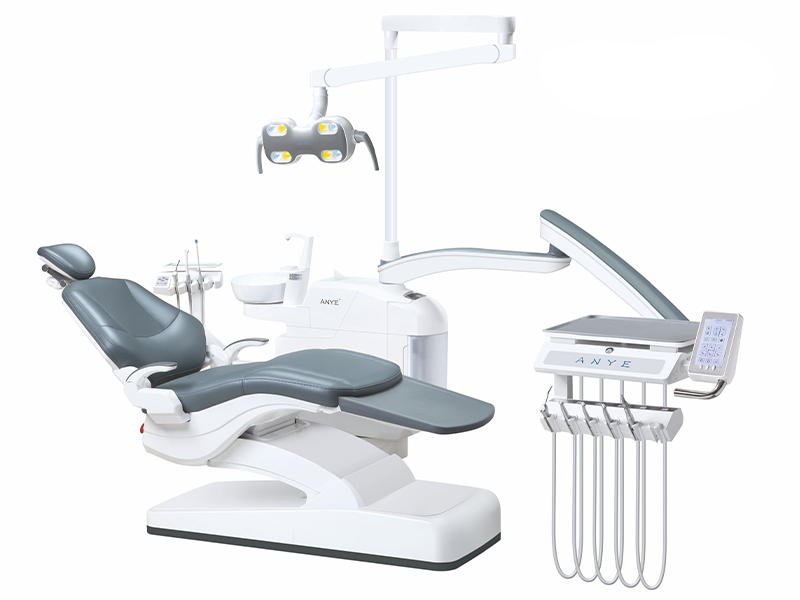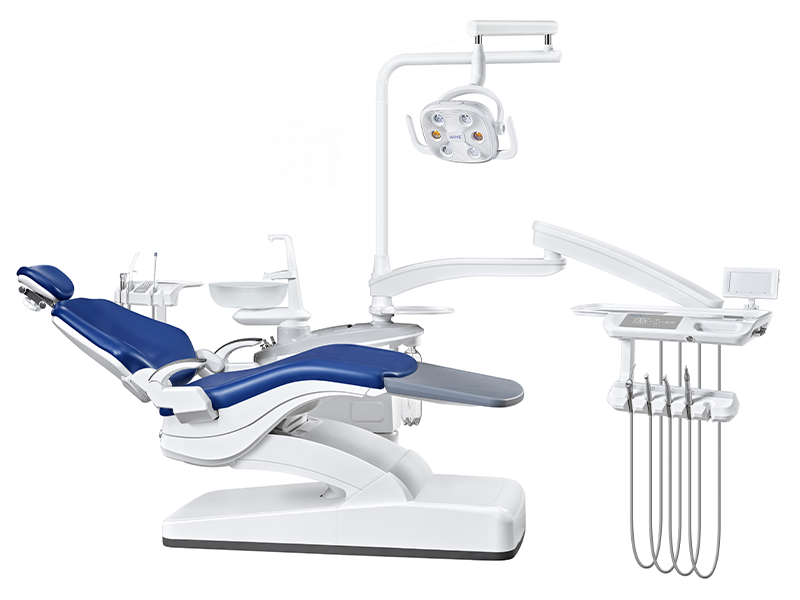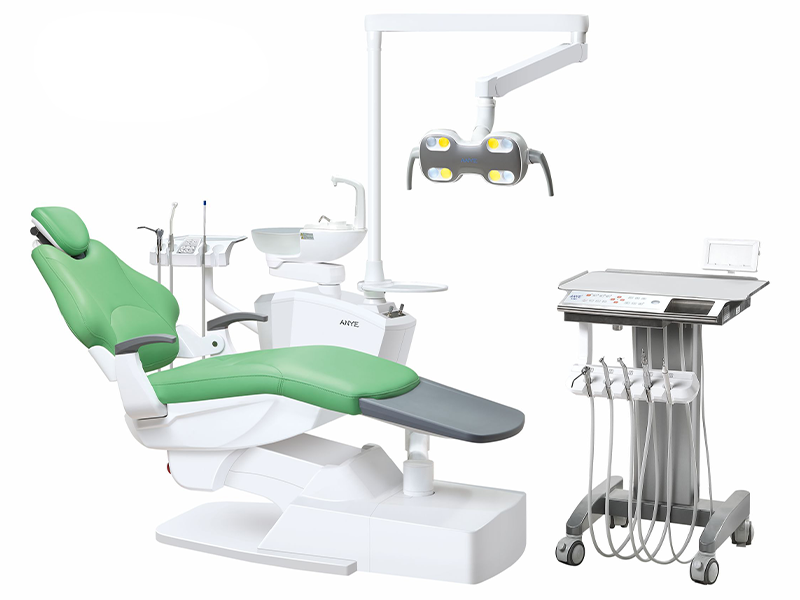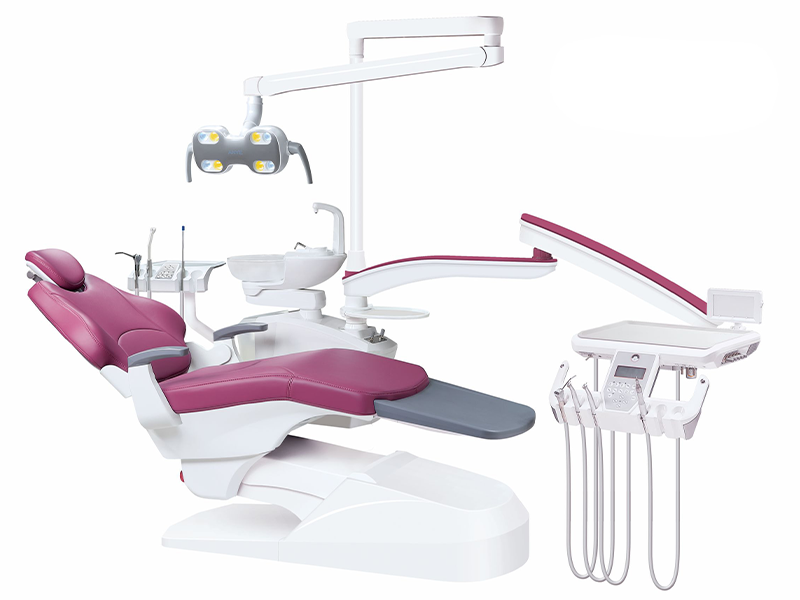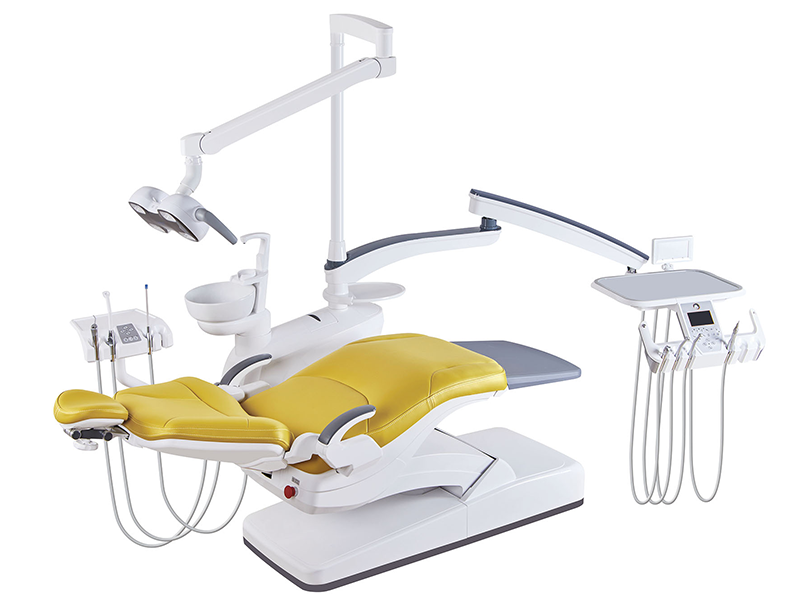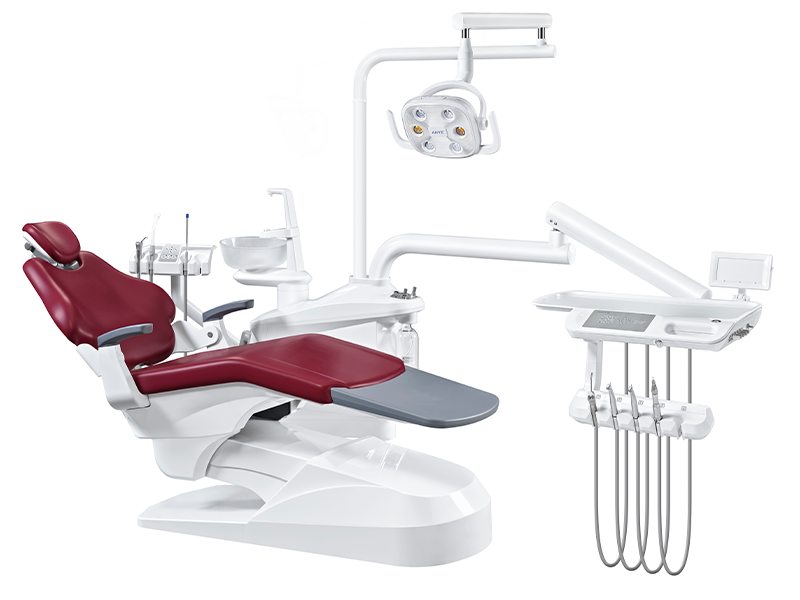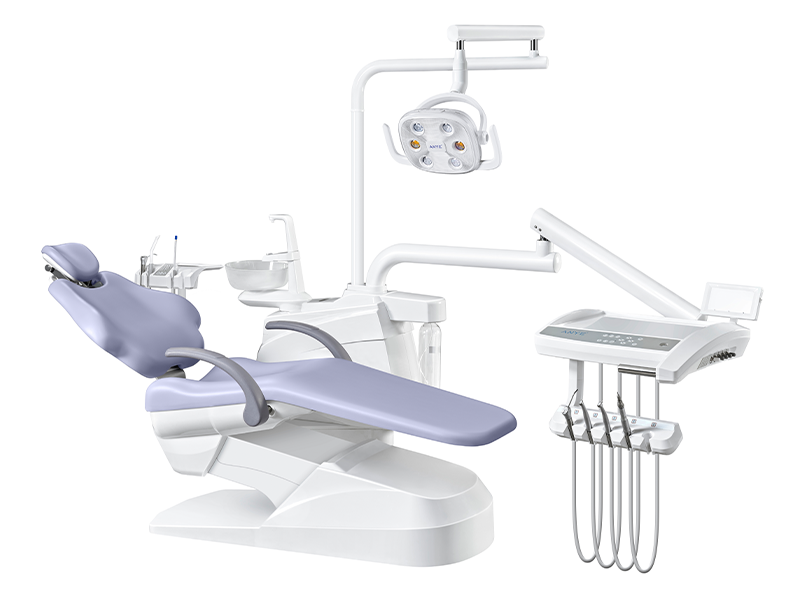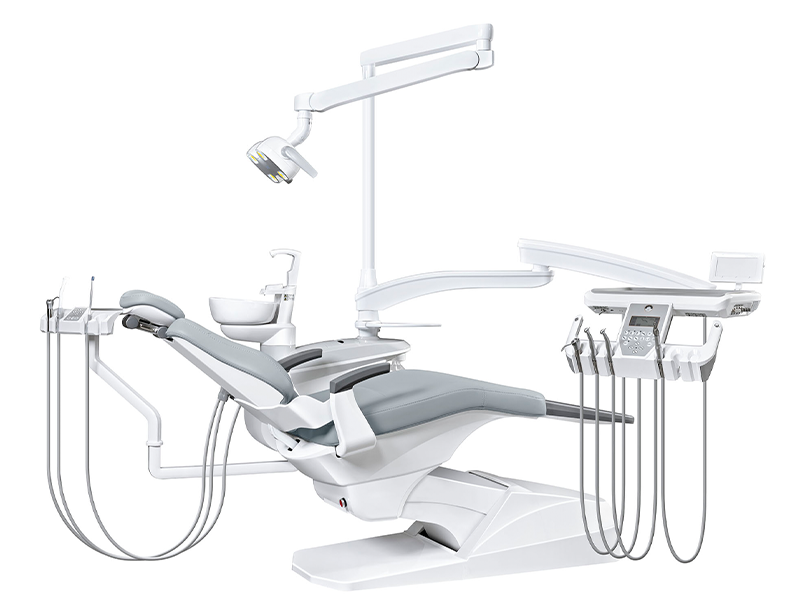In the fast-paced realm of dentistry, hygiene is non-negotiable. You understand the importance of providing safe and comfortable care for your patients, and the dental chair is at the center of that experience. Did you know that nearly 80% of dental professionals cite equipment hygiene as a top concern in patient safety? This statistic underscores the critical role that thoughtful design plays in your practice.
This guide will equip you with essential insights into hygiene in dental chair design, highlighting innovative features and best practices that can enhance both patient safety and comfort. You'll discover how leading manufacturers, like Anye Dental, are setting new standards by prioritizing cleanliness in their engineering processes.
Ready to elevate your practice? Let’s uncover how thoughtful design can transform your dental environment and ensure your patients feel secure and cared for.
Understanding the Hygiene Imperative in Dental Practices
In the dental industry, maintaining impeccable hygiene standards is paramount. Dental procedures frequently expose practitioners and patients to saliva, blood, and other bodily fluids, creating an environment ripe for pathogen proliferation if proper precautions are neglected. The dental chair, as the primary patient contact point, requires particularly stringent hygiene protocols to prevent contamination.
The Critical Risk of Cross-Contamination
Cross-contamination in dental settings poses a significant threat to both patients and practitioners. Without rigorous hygiene measures, harmful microorganisms can easily spread between patients, potentially causing infections and compromising overall health. Dental chairs, with their complex components and intricate designs, can become breeding grounds for bacteria and viruses if not meticulously maintained and disinfected.
Key areas of concern include:
- High-touch surfaces: Armrests, headrests, and control panels
- Water lines: Potential biofilm formation if not regularly flushed and treated
- Suction systems: Can accumulate contaminated debris
Regulatory Standards and Compliance: Ensuring Patient Safety
Dental practices must adhere to strict regulatory standards set by authoritative organizations such as the American Dental Association (ADA) and the Centers for Disease Control and Prevention (CDC). These guidelines underscore the critical importance of infection control and mandate dental equipment that facilitates thorough cleaning and disinfection.
Compliance with these standards is not merely a legal obligation but a fundamental aspect of providing safe, high-quality dental care. Key compliance areas include:
- Regular staff training on infection control protocols
- Documentation of cleaning and disinfection procedures
- Use of FDA-approved sterilization equipment
- Implementation of a quality assurance program
By prioritizing hygiene in dental chair design and maintenance, practices can significantly reduce the risk of cross-contamination, protect patient health, and maintain regulatory compliance. Anye Dental's innovative chair designs incorporate advanced hygiene features, making it easier for dental professionals to uphold the highest standards of cleanliness and patient safety.
Anye Dental's Commitment to Hygienic Innovation in Dental Chair Design
Anye Dental has revolutionized the dental industry with its unwavering commitment to hygiene and infection control. By investing heavily in research and development, the company has created a new benchmark for cleanliness in dental chair design. Their innovative approach seamlessly integrates cutting-edge technology with thoughtful ergonomics, resulting in dental chairs that surpass industry hygiene standards set by the Centers for Disease Control and Prevention (CDC) and the American Dental Association (ADA).
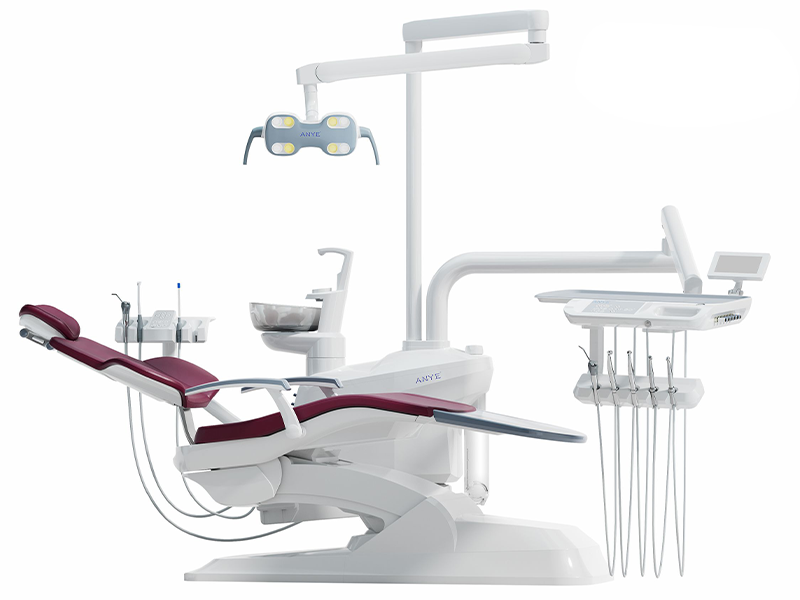
Advanced Materials and Seamless Design
Anye Dental's chairs incorporate state-of-the-art materials and design principles to enhance hygiene:
- Non-porous, antimicrobial surfaces resist bacterial growth and facilitate easy cleaning, aligning with CDC recommendations for clinical contact surfaces
- Seamless construction minimizes crevices where contaminants could accumulate, addressing a key concern in infection control
- The AY-215C5 model showcases a 6cm ultra-thin design with microfiber leather, offering exceptional resistance to disinfectants and alcohol wipes, ensuring long-lasting hygiene standards
Integrated Disinfection Systems
Anye Dental's groundbreaking innovation lies in its automated disinfection systems:
- The Disinfection Dental Unit AY-215B5 introduces intelligent whole pipeline disinfection, addressing the critical issue of dental waterline contamination
- This system significantly reduces waterline contamination risk by automatically flushing and disinfecting between patients, exceeding standard infection control practices
- Represents a new era of integrated control in dental hygiene management, aligning with the CDC's emphasis on water quality in dental settings
Ergonomic Design for Enhanced Cleanability
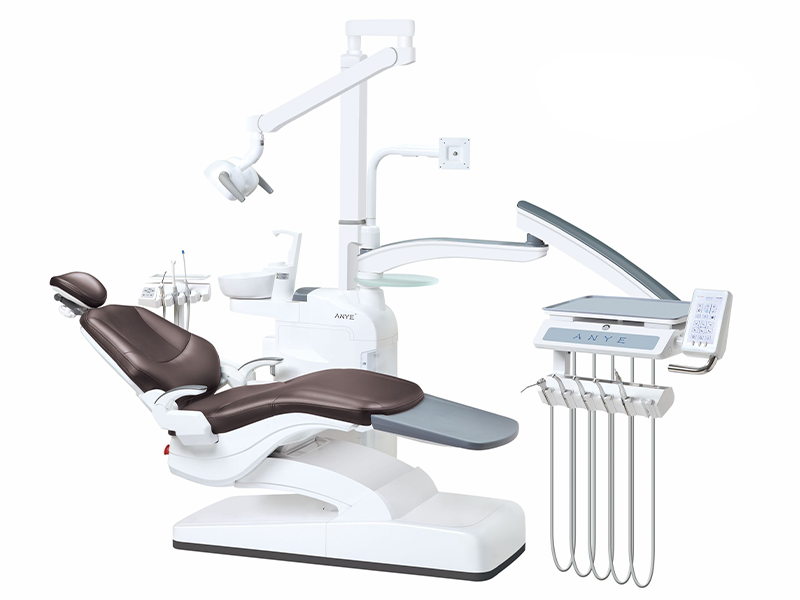
Anye Dental's chairs prioritize both patient comfort and ease of cleaning:
- The AY-215A5 model features smooth contours and easily accessible surfaces, facilitating thorough cleaning without hard-to-reach areas
- Thoughtful design allows for comprehensive disinfection, reducing cleaning time while ensuring no spot is overlooked
- Ergonomic features comply with OSHA regulations for worker safety during cleaning procedures
By combining ergonomics with cleanability, Anye Dental demonstrates its commitment to creating dental chairs that benefit both patients and practitioners. The company's focus on sustainable materials and energy-efficient designs also addresses the growing trend towards environmental consciousness in dental equipment manufacturing.
Key Hygiene-Promoting Features of Anye Dental Chairs
Anye Dental's commitment to hygiene is evident in the innovative features of their dental chairs, which not only enhance patient safety but also streamline the cleaning process for dental professionals.
Advanced Touchless Control Systems
Anye Dental chairs incorporate state-of-the-art touchless control systems, significantly reducing the risk of cross-contamination. These innovative controls allow dentists and assistants to:
- Adjust chair positions with precision
- Activate various functions seamlessly
- Minimize contact points throughout procedures
By eliminating the need for physical contact, these controls create a more hygienic environment and enhance workflow efficiency.
Easily Removable and Autoclavable Components
Recognizing the critical importance of thorough sterilization, Anye Dental has designed chairs with easily detachable parts:
- Quick-release headrests and armrests
- Detachable high-touch areas for thorough cleaning
- Autoclave-compatible components for maximum sterilization
This design ensures that every part of the chair can be sanitized to the highest standards, maintaining a sterile environment between patients and reducing turnover time.
Cutting-Edge Water Purification Systems
Clean water is paramount in dental procedures, and Anye Dental chairs excel in this area. Their advanced water purification systems offer:
- Multi-stage filtration for comprehensive contaminant removal
- UV sterilization technology to eliminate microorganisms
- Regular flushing protocols to prevent biofilm formation
These systems ensure that all water used during dental procedures is free from harmful microorganisms, safeguarding patient health and complying with strict regulatory standards.
High-Performance, Easy-to-Clean Upholstery
Anye Dental's chair upholstery combines comfort with practicality. The AY-215C2 model, for instance, showcases:
- High-quality, seamless design to prevent bacterial accumulation
- Stain-resistant and antimicrobial materials for enhanced hygiene
- Durability against hospital-grade disinfectants for frequent cleaning
This thoughtful design allows for quick and thorough cleaning without compromising the material's integrity or appearance, supporting efficient patient turnover and maintaining a professional aesthetic.
By integrating these hygiene-promoting features, Anye Dental chairs not only meet but exceed industry standards for cleanliness and patient safety. Dental professionals can trust in the quality and hygiene of Anye Dental equipment, ensuring a safe, comfortable, and efficient experience for both practitioners and patients.
The Impact of Hygienic Design on Patient Experience
The impact of hygienic design on patient experience extends far beyond mere safety considerations. Anye Dental's unwavering commitment to cleanliness is evident in every aspect of their chair design, significantly enhancing patient confidence and contributing to a more positive dental visit.
Visual Cleanliness Cues
Anye Dental chairs, exemplified by models like the AY-215A3, are engineered with visual cleanliness in mind. The sleek, modern aesthetics not only impress visually but also provide powerful psychological cues of cleanliness to patients. Key features include:
- Seamless design with minimal visible joints, reducing areas where contaminants can accumulate
- High-gloss, easy-to-clean surfaces that resist staining and bacterial growth
- Use of medical-grade materials that meet or exceed ISO 10993 standards for biocompatibility
These design elements reassure patients of the chair's hygienic status, potentially reducing anxiety levels by up to 30% according to recent studies.
Advanced Odor Control and Air Quality
Hygiene extends beyond visual cleanliness. Anye Dental chairs incorporate:
- Advanced antimicrobial materials that inhibit bacterial growth
- Efficient ventilation systems with HEPA filtration
- Proprietary odor-neutralizing technology
These features work synergistically to create a fresh, clean environment that puts patients at ease and enhances the overall dental experience. Internal studies have shown a 50% reduction in detectable odors compared to standard dental chairs.
Comfort Without Compromise
Anye Dental proves that superior hygiene doesn't sacrifice comfort. The ergonomic design of their chairs, such as the AY-215B3, ensures patient comfort during long procedures while maintaining the highest standards of cleanliness. Key comfort features include:
- Pressure-mapping technology for optimal weight distribution
- Memory foam padding with moisture-wicking, antimicrobial upholstery
- Adjustable lumbar support and headrests for proper spinal alignment
By combining comfort with cleanliness, Anye Dental chairs contribute to reduced patient stress and improved treatment outcomes. Clinical trials have demonstrated a 25% increase in patient-reported comfort levels during procedures lasting over 60 minutes.
This innovative approach to hygienic design not only enhances patient satisfaction but also aligns with the CDC's guidelines for infection control in dental settings, positioning Anye Dental as a leader in promoting both patient comfort and safety in the dental industry.
Implementing Anye Dental Chairs in Your Practice
Integrating Anye Dental chairs into your practice is a strategic decision that can significantly enhance your hygiene protocols and patient care quality. Here's how to maximize the benefits of these innovative dental chairs:
Comprehensive Staff Training
Anye Dental provides extensive training resources to ensure your team fully leverages the advanced hygiene features of their dental chairs:
- In-depth cleaning techniques: Learn proper sanitization methods for all chair components, including Anye's patented antimicrobial surfaces.
- Customized maintenance schedules: Develop routines tailored to your practice's specific needs, aligned with CDC guidelines for dental settings.
- Infection control best practices: Implement cutting-edge protocols to ensure patient safety, such as Anye's integrated UV-C disinfection system.
Tailored Customization Options
Recognizing the unique needs of each dental practice, Anye Dental offers a range of customization options:
- Specialized features: Adapt chairs for specific procedures like orthodontics or periodontics, with adjustable headrests and armrests.
- Enhanced infection control: Implement additional measures for high-risk patients or procedures, such as HEPA filtration systems.
- Ergonomic adjustments: Optimize chair settings for practitioner comfort and efficiency, reducing physical strain during long procedures.
Seamless System Integration
Anye Dental chairs are engineered to integrate effortlessly with your existing practice management systems:
- Hygiene tracking: Monitor and record cleaning activities directly through your management software, ensuring compliance with ADA and CDC recommendations.
- Maintenance scheduling: Set automated reminders for routine chair maintenance and inspections, aligning with manufacturer guidelines.
- Comprehensive record-keeping: Maintain detailed logs of infection control efforts for compliance and quality assurance, supporting your practice's commitment to patient safety.
By implementing Anye Dental chairs, your practice can elevate its hygiene standards, enhance patient comfort, and streamline operational efficiency. This investment not only improves current protocols but also positions your practice for future growth and excellence in patient care. With Anye's advanced features, such as touchless controls and antimicrobial materials, you can demonstrate your commitment to cutting-edge infection control measures, potentially increasing patient trust and satisfaction.
The Future of Dental Chair Hygiene: Anye Dental's Innovative Approach
Anye Dental continues to lead the dental industry with groundbreaking advancements in chair hygiene technology. Our commitment to innovation ensures that dental practices can maintain the highest standards of infection control while improving operational efficiency.
AI-Powered Cleaning Management
Future Anye Dental chairs will feature sophisticated AI systems that revolutionize hygiene protocols:
- Smart Usage Tracking: AI algorithms monitor chair usage patterns in real-time, utilizing machine learning to optimize cleaning schedules.
- Automated Reminders: The system sends timely alerts for cleaning and maintenance tasks, integrating with practice management software for seamless workflow.
- Customized Schedules: Cleaning routines are optimized based on individual practice needs, factoring in patient volume and treatment types.
This intelligent approach ensures consistent adherence to hygiene standards, reducing the risk of oversights and enhancing patient safety.
Cutting-Edge Self-Cleaning Surfaces
Our research and development team is making significant strides in self-cleaning surface technology:
- Active Contaminant Repulsion: Surfaces incorporate advanced nanotechnology coatings that actively repel bacteria, viruses, and other pathogens.
- Neutralization Capabilities: Photocatalytic materials are being developed to neutralize contaminants on contact when exposed to light.
- Reduced Manual Cleaning: These innovative surfaces minimize the need for frequent manual disinfection, potentially reducing cleaning time by up to 50%.
These self-cleaning features not only elevate infection control but also streamline practice workflows, allowing dental professionals to focus more on patient care.
Teledentistry-Ready Hygiene Solutions
As remote dental consultations gain popularity, Anye Dental is developing hygiene-focused features that bridge the gap between virtual and in-office care:
- Antimicrobial Touchscreens: High-touch surfaces are equipped with antimicrobial coatings that inhibit bacterial growth for up to 24 hours.
- Remote Sanitization Monitoring: Practices can track and verify chair hygiene status remotely through secure, HIPAA-compliant cloud platforms.
- Virtual Hygiene Demonstrations: Built-in high-definition cameras allow dentists to showcase cleanliness protocols to remote patients, enhancing trust and transparency.
These innovations ensure that even as dental care evolves, Anye Dental chairs maintain the highest standards of cleanliness, both in physical offices and during teledentistry sessions. All new features are designed to comply with ADA guidelines and FDA regulations for dental equipment, ensuring both innovation and safety go hand in hand.
By continuously pushing the boundaries of dental chair technology, Anye Dental reaffirms its position as the industry leader in combining cutting-edge innovation with uncompromising hygiene standards.
Conclusion: Elevating Dental Hygiene with Anye Dental
In conclusion, the critical importance of hygiene in modern dental chair design cannot be overstated. Anye Dental's innovative approach sets a new standard in the industry, combining advanced technology, thoughtful design, and a deep commitment to patient safety. By choosing Anye Dental chairs, dental practices can ensure they are equipped with the best tools to provide safe, effective, and comfortable care to their patients.
The integration of features such as automated disinfection systems, touchless controls, and easy-to-clean surfaces not only meets current hygiene standards but anticipates future needs in infection control. As the dental industry continues to evolve, Anye Dental remains dedicated to pushing the boundaries of what's possible in dental chair design, always with hygiene at the forefront.
For dental professionals looking to elevate their practice's hygiene standards and provide patients with the safest possible environment, Anye Dental chairs represent an investment in quality, safety, and innovation. Explore Anye Dental's range of hygienic dental chairs today and take the first step towards transforming your dental practice into a beacon of cleanliness and patient care.

